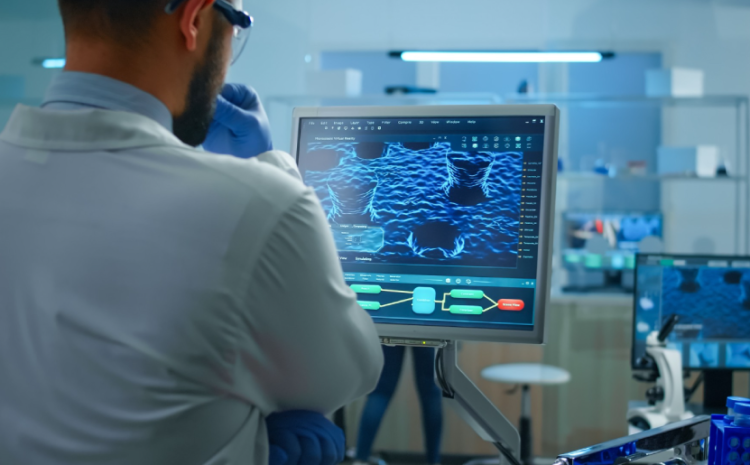AI in Surgery: improvement of results and precision

Artificial intelligence (AI) is also transforming the field of surgery, where precision and speed are crucial to the success of procedures and patient recovery. Here’s how AI helps manage complex surgical cases:
Preoperative Planning
AI assists surgeons in preoperative planning by providing detailed analyzes and simulations.
Advanced Medical Imaging:
AI can analyze medical images (MRI, scanner, ultrasound) to create 3D models of the patient's anatomical structures. This allows surgeons to visualize the exact location of tumors, blood vessels and other critical structures before surgery.
Surgical Simulation:
Using AI-based simulations, surgeons can perform procedures on virtual models. These simulations allow testing of different approaches and predicting potential complications, thereby improving surgeon preparation and confidence.
Intraoperative Assistance
During the operation, AI provides valuable assistance to improve the precision and efficiency of surgical interventions.
Robot-Assisted Surgery:
Robotic surgery systems integrated with AI enable extremely precise movements. Surgical robots can make incisions and sutures with millimeter precision, reducing the risk of damage to surrounding tissue.
Surgical Navigation:
AI algorithms provide real-time navigation during surgery, guiding surgical instruments and minimizing errors. These systems use live images and patient data to adjust instrument trajectories in real time.
Postoperative Care
AI also plays a crucial role in post-operative care, ensuring rapid and efficient recovery of patients.
Postoperative monitoring:
AI systems monitor patients' vital signs after surgery to detect potential complications, such as infections or bleeding. Early warnings enable rapid intervention, reducing the risk of serious complications.
Pain Management:
AI can adjust pain management protocols based on individual patient responses. By analyzing pain levels and reactions to painkillers, AI helps optimize doses and avoid side effects.
Training of Surgeons
AI contributes to the training of future surgeons by providing advanced and interactive learning tools.
Virtual Surgery Simulators:
AI-based surgery simulators provide immersive training for surgeons-in-training. They can practice procedures on realistic virtual models, gaining experience without risking patient safety.
Performance Analysis:
AI can analyze surgeons’ performance during simulations and real-world procedures, providing detailed feedback and recommendations to improve their skills. This helps surgeons identify their weak points and continually improve.

